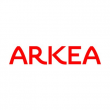Saxo Bank gobbles up Turkey business
Online investment bank Saxo Bank has opened an office in Istanbul, Turkey, following its acquisition of local broker Değer Menkul Değerler in May last year.
The head of the new office is Egemen Kaya, previously head of emerging markets and precious metals desk at Saxo Bank’s headquarters in Denmark. The Turkish business will offer retail investors access to an estimated 20,000 financial instruments, including 50+ foreign exchange pairs, 8,300 contracts for difference, single stocks on CDFs, futures and options.
“With the new stock exchange structure, Borsa Istanbul, improving technological infrastructure as well as the newly established single stock options market, Turkey has begun to demonstrate to the rest of the world its capabilities and investment potential,” said Kaya. “Low inflational and interest rates are present in Turkey, and Saxo Bank anticipates an increasing number of Turkish investors to ask for a broader range of international market products such as forex, international stocks, futures and options. By having a presence in this young and buoyant market, Saxo Bank and its Turkish subsidiary Saxo Capital Markets Menkul Değerler are now positioned well to facilitate these demands.”
Founded in 1992, Saxo Bank is based in Copenhagen and has 23 local offices spread across Europe, Asia, the Middle East, Latin America, Africa and Australia. The company’s main tools are its trading platforms the browser-based SaxoWebTrader, the downloadable SaxoTrader and its SaxoTrader app, which are currently available in 20 languages.
Turkey has become increasingly welcoming to international investors in recent years. Lured by the domestic market capitalisation of €215 billion reported on the Istanbul Stock Exchange, and by an IPO pipeline that saw €422 billion in new capital enter the market last year, western capital markets companies such as block trading network Liquidnet have been quick to pick up on the opportunities presented by Turkish modernisation and economic growth. Liquidnet entered the Turkish market in July 2012.
Solid macroeconomic performance has helped – Turkey is currently the seventh-largest economy in Europe – while wide-ranging reforms to the country’s Capital Markets Law have seen Turkey adopt the same legal definitions of financial instruments and other terms as used by the European Union in its MiFID directive. Further refinements, such as a rule change in late 2010 that effectively unlocked the door to algorithmic trading in the country, have prompted large banks including Citi to release advanced trading products including algorithmic and direct market access offerings in the country within the last 18 months.












































